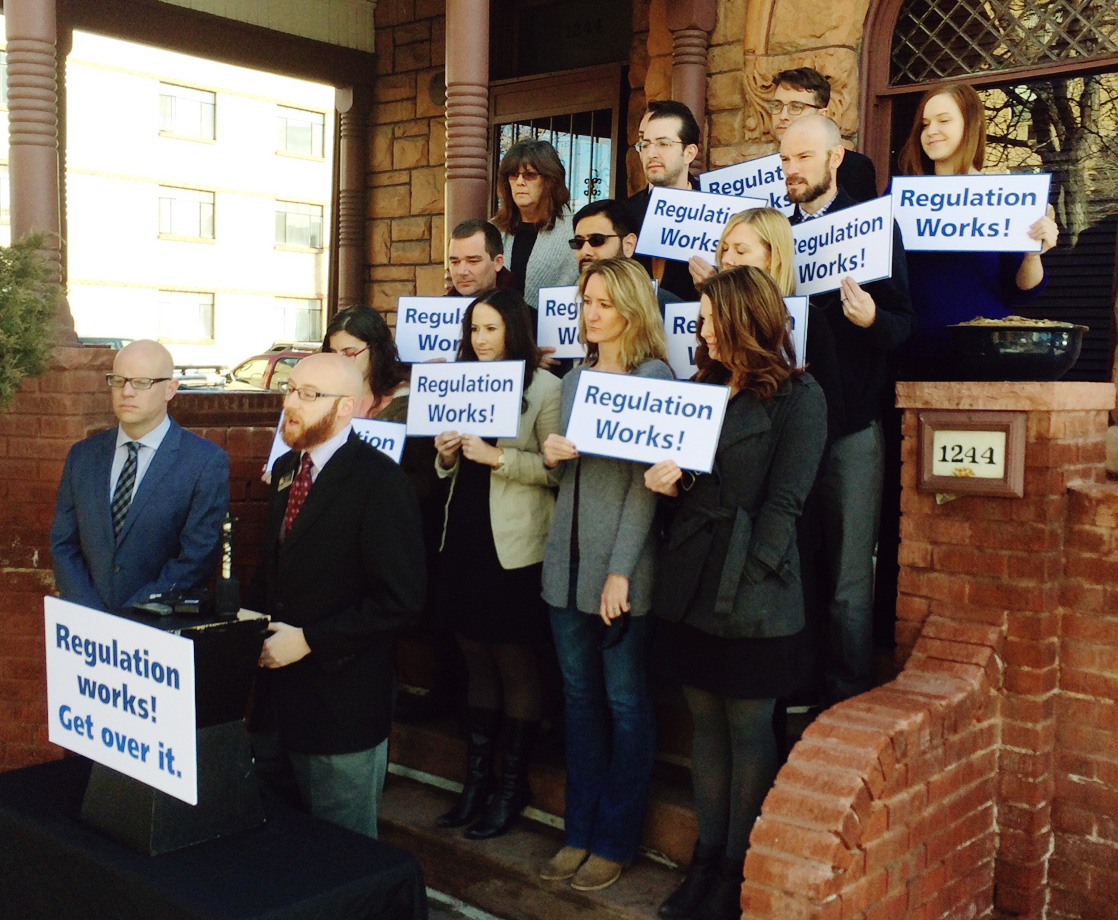There’s been a lot of noise reverberating throughout the Colorado cannabis scene recently over a proposed anti-pot ballot measure pushing to get in front of the voters this November.
The initiative aims to castrate the state’s lucrative recreational pot market by restricting the potency of all cannabis products and imposing standards that would force manufacturers to affix FDA-style warning labels on the packaging that suggests the use of marijuana may lead to birth defects, depression, and long-term addiction.
The Healthy Colorado Coalition (HCC) was given permission last month by the Colorado Supreme Court to move forward with a proposed ballot measure (Amendment 139) seeking to impose a hefty list of restrictions on the state’s recreational cannabis sector. The language of the proposal states that cannabis producers would no longer have the freedom to manufacturer cannabis products – flowers, edibles, oils, etc – that contain more than 16 percent THC – significantly less than the state’s average limit of 17 percent for smokeable marijuana and 62 percent for concentrates. It would also force the industry to begin labeling its products with warnings intended to advise the consumer that marijuana use can cause a variety of health conditions, including “permanent loss of brain abilities.”
The proposal comes after a wildly unsuccessful attempt at passing a bill in the Colorado Legislature, earlier this year, aimed at capping the THC-limits on recreational pot products. Although some lawmakers agreed that the majority of the cannabis being sold throughout the state was entirely too strong for the average consumer, the bill was ultimately dismissed because THC-capping was found to be unconstitutional.
While some of the more naïve members of the cannabis industry do not appear to be too concerned about Amendment 139, others understand just how dangerous it could be to the entire foundation of legal marijuana. That’s because the proposal stands to change the constitution of the State of Colorado and force the industry to adhere to regulations rooted in reefer madness and speculative scientific analysis.
The same cannabis advocates who assisted in the successful passage of Colorado’s Amendment 64 back in 2012 argue that the HCC’s initiative is a poorly devised plan based on junk science – one that would do nothing more than contribute to the lifeblood of the black market and force people to use more marijuana to garner the same effect.
“The initiative is very foolishly written and would have a variety of unintended negative consequences when it comes to public health and safety,” Mason Tvert, director of communications for the Marijuana Policy Project, told MERRY JANE.
“It would force marijuana concentrates and infused products back into the underground market, incentivize potentially dangerous home-based extraction activities, and steer consumers toward smoking instead of vaporizing. It will also simply result in adults consuming more marijuana than they might have otherwise in order to experience the desired effect.”
As it stands, Health Colorado has until August 8 to submit the 98,000 signatures needed to qualify for the ballot. If the group manages to drum up the necessary support, there is a distinct possibility the initiative will go before the voting community later this fall.
A report from the Associated Press indicates the passing of Amendment 139 would officially outlaw nearly 80 percent of the cannabis products being sold throughout the state.
It is for this reason that a new, well-funded organization called the Colorado Health Research Council (CHRC), “a coalition of cannabis patients, caregivers, scientists, cannabis industry leaders, the business community and ordinary citizens,” has launched a campaign aimed at stopping Amendment 139 dead in its tracks. So far, the group has raised more than $300,000 to combat the anti-pot initiative, with even more money expected to come trickling in once more members of the Colorado cannabis industry begin to realize the threat of the ballot measure.
In a recent interview with The Denver Post, supporters of Amendment 139 said they did not have financial muscle to compete with the CHRC. But the group feels confident that its quest for more “reasonable controls” on the cannabis industry will make it on the ballot this November.











